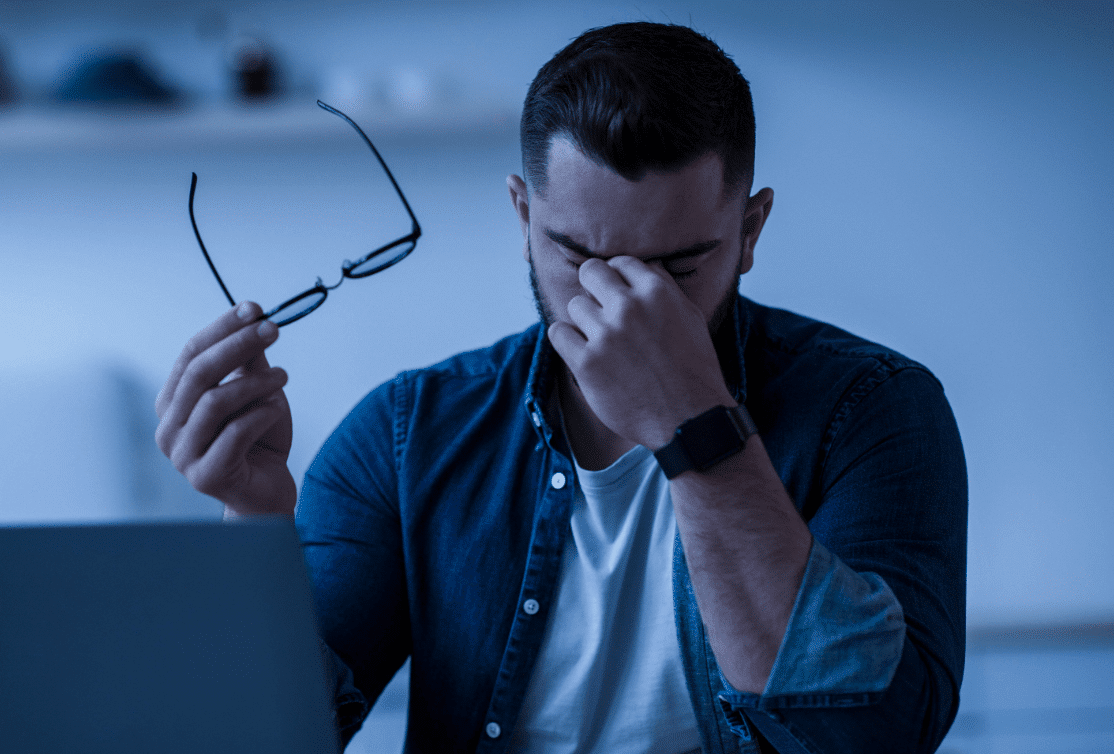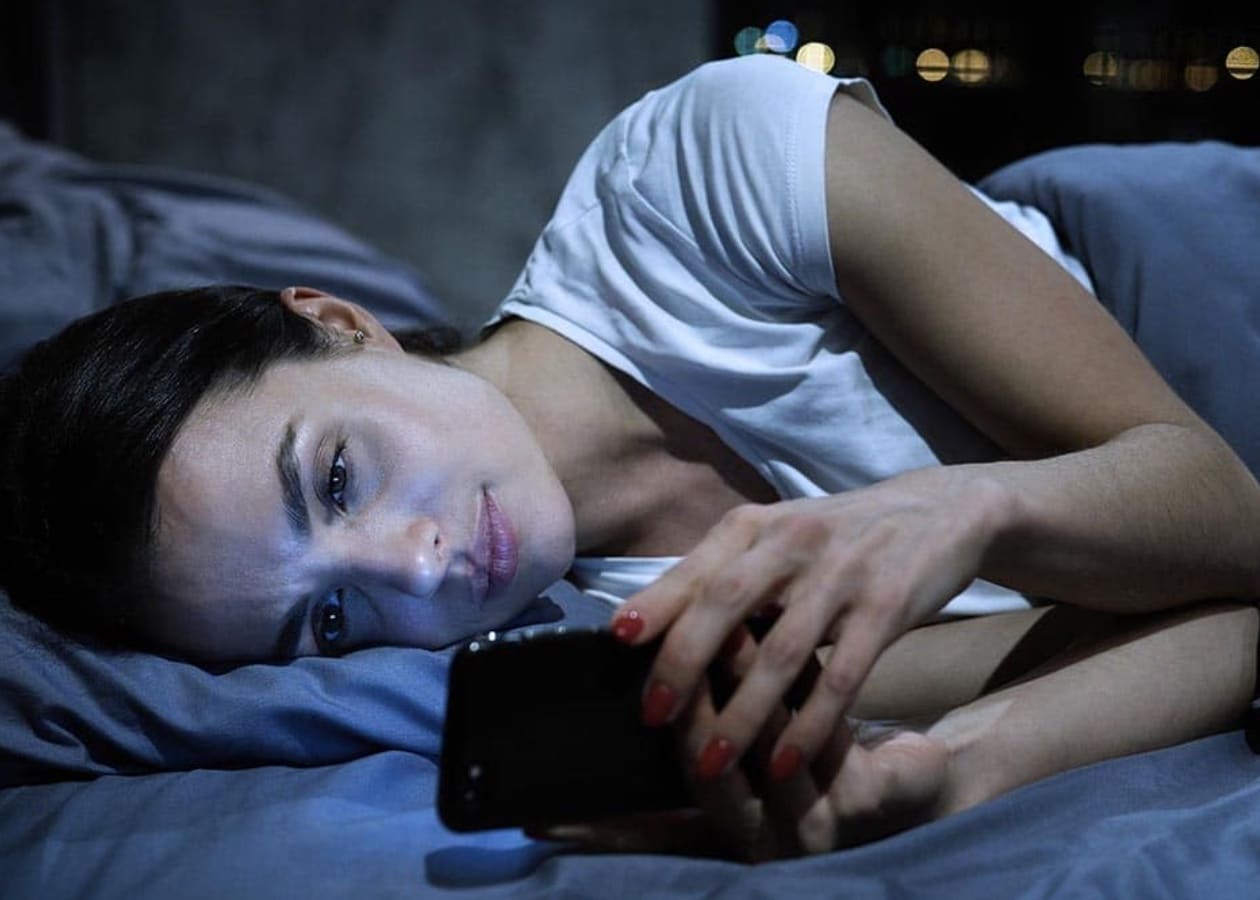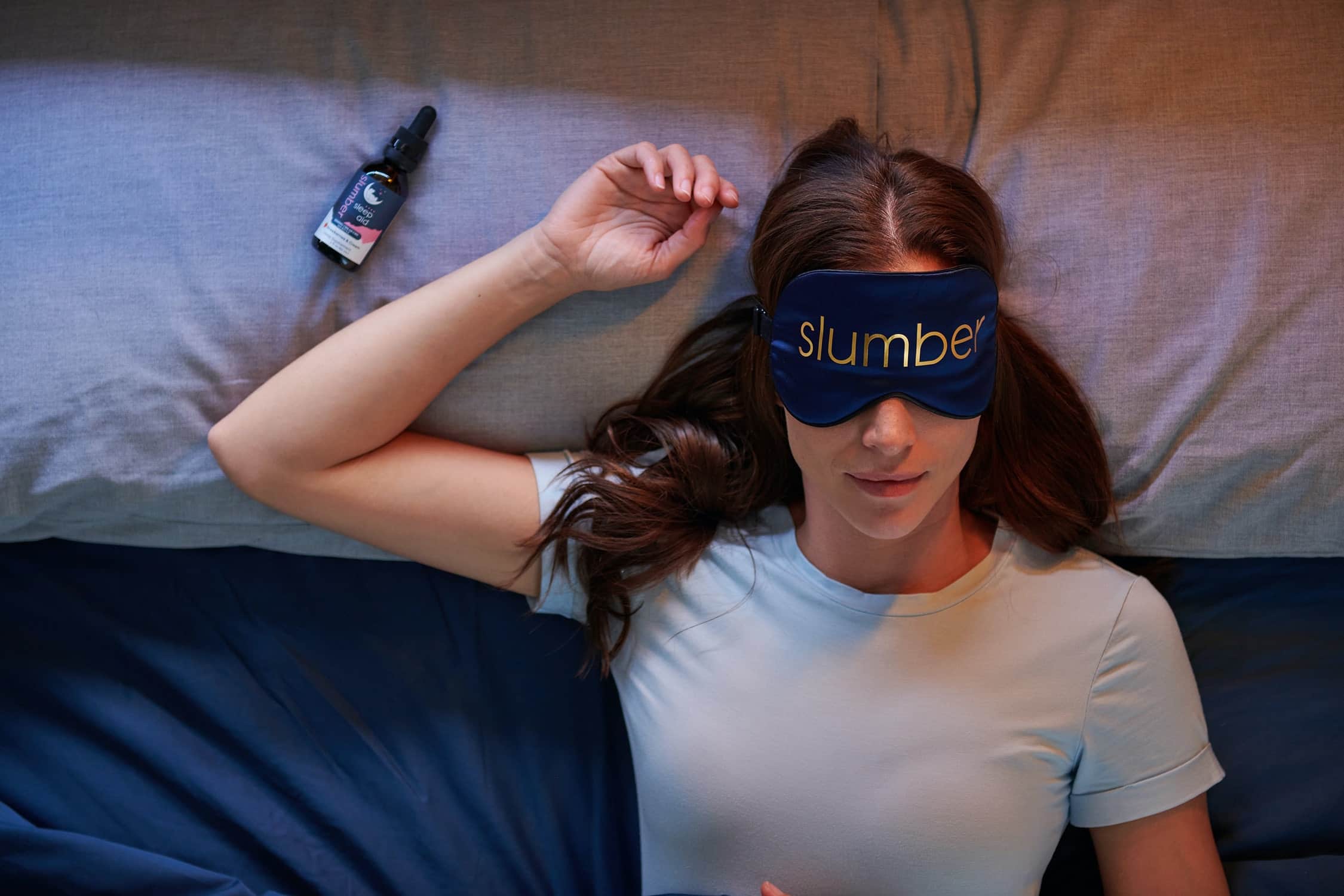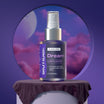It can be relaxing to watch your favorite shows before bed or curl up to your favorite movies. However, a few episodes or a movie can drastically affect your sleep. People do it all the time, which is expected since it's one of America's favorite pastimes, but it's not such a great idea.
In this article, we'll discuss why TV before bed is a bad idea. It's more than just a distraction; harmful blue light and peak noises will disrupt your sleep and set unhealthy patterns that can carry on for a long time unless corrective action is taken. Prolonged exposure can also lead to severe consequences.
Here's what you need to know.
Does Watching TV Before Bed Affect Your Sleep?
You might think that watching a few episodes before bed is harmless, but that's not the case. Watching even one episode leads to exposure to blue light before bed, which can alter your sleep patterns. It's recommended by most doctors that you get eight hours of sleep on average every night, but watching TV before bed can hinder that.
It doesn't help when there are screens everywhere. Phones and tablets are small enough to rest on the nightstand, but the real issue is when a TV is placed in the bedroom. It presents a distraction that can easily spiral out of control. Not only can binge-watching lead to a lack of sleep, but background noise can also disrupt your sleep patterns.
Screens emit blue light when used, keeping the brain active and preventing you from getting restful sleep. A lack of sleep can lead to further issues, such as anxiety, depression, insomnia, and weight gain. With these risks, it's important to manage your sleep patterns to avoid any harmful habits, which include exposure to blue light before bed.
The bottom line is that watching TV before bed affects your sleep because of the exposure to blue light, which in turn can lead to several other health-related issues if left out of control for extended periods. That brings us to the question: what is blue light?
Skip the Netflix and grab a CBN gummy.
Find out why 1000's of people trust Slumber every night for deeper, more quality sleep. Shop Sleep Gummies
What is Blue Light?
Blue light is invisible to the naked eye, but harmful. It's emitted from all electronic screens, including but not limited to phones, tablets, and TVs. Exposure to blue light before bed is common, especially with phones and smaller devices, but the problem at large is having a TV present in bedrooms.
When a TV is present outside the family room or living room, the opportunity to turn it off and walk away disappears. If a TV is placed in a bedroom, the odds of watching it while falling asleep increase. More than just watching shows, people use their TV screens to play video games, stream movies, and play music. All of these can easily become harmful distractions that expose your eyes to blue light before bed.
The CDC claims that using a TV or computer screen early in the morning or before bed can lead to a disruption in circadian rhythms that sends an alert through your internal systems, triggering the body's response to the daytime. Red wavelength light is less likely to trigger this response, but most electronic devices emit the bright, vibrant blue lights that keep our systems up and running, falsely believing it to be daytime.
Effects of Blue Light
In addition to disrupting sleep, blue light exposure can lead to a series of other effects that can harm your health. These effects range from temporary discomforts to permanent, debilitating damage. When you spend too much time watching TV before bed, you can seriously jeopardize your health.
The blue light exposure triggers a response in the body to reduce the amount of melatonin produced, affecting the overall quality of your sleep. When you increase the amount of exposure to blue light before bed, you dramatically impact your sleep patterns and circadian rhythms.
Before you continue to experience exposure to blue light before bed, take a look at the effects you may experience. Catching these effects early can help you manage your blue light exposure overall and reduce the interruption to your sleep cycle and waking hours.

Eyestrain
Eyestrain is caused when your eyes become tired after being focused for so long. This can occur when people drive long distances, but most commonly this symptom emerges after staring at digital screens for too long. In most cases, eyestrain is merely a nuisance that goes away after a few hours of rest. Time away from screens can alleviate the symptoms of eyestrain, but there are other ways to rest your eyes as well.
The problem arises when eyestrain doesn't go away. Prolonged use of screens can cause watery eyes and a headache. Additionally, those who experience eyestrain report sore necks, shoulders, and backs with an increased sensitivity to light. It may also be accompanied by difficulty concentrating or the feeling that you can't keep your eyes open. This can greatly affect the overall quality of your sleep, causing restlessness and irritability.
Prolonged eyestrain can be an indicator of an underlying condition that needs treatment by a professional. If symptoms don't go away, or they worsen, it's time to seek professional help.
Dry eyes
Dry eyes can occur after too much blue light exposure because your eyes aren't working like they should. Instead of blinking when needed, your eyes try to stay open and focus on the screen where light is pouring into your vision. The brightness and the intensity of the colors on the screen can lead to increased interruption from dry eyes.
You may experience an irritating stinging or scratching sensation in your eyes that lasts for several minutes. This can often be alleviated by looking away from screens before bed and taking time to look at something roughly twenty feet away for twenty seconds to ensure your eyes focus and adjust away from blue light.
There are drops that can help you alleviate the symptoms of your dry eyes, but artificial tears are only a temporary solution to a much bigger problem. Exposure to blue light before bed can lead to restless sleep as your body tries to accommodate the dryness and refresh your eyes.
Dry eyes can hinder your ability to sleep well as the discomfort can keep you up for hours, depending on the severity. The best way to reduce the effect of dry eyes induced by blue light is to eliminate time spent watching TV before bed. Even if the TV is on the opposite end of the room, the light reaches your eyes can can dry them out before you sleep, leading to restlessness and irritability.
Blurred Vision
When you stare at screens for too long, your vision can become blurred. This blurred vision can also occur when you watch TV before bed, smearing the blue light across your retinas before you pass out. The blue light emitted from screens such as phones, tablets, computers, and TVs elicits a response the reduces the quality of your sleep.
Blurred vision is one effect of eyestrain, and the harmful blue light can make your brain stay awake longer. When your vision is blurred, it's instinctual to try and correct it so that you can see. Depending on the combination of symptoms, this may take seconds or minutes. This precious time could be used elsewhere to start facilitating restful sleep.
Migraines
When you experience prolonged eyestrain, you may notice a migraine setting in. This can start in your head as a dull pulse or as a sharp pang behind the eyes. Your dominant eye will most-likely feel the brunt of it as you continue to look around. Continued blue light exposure will worsen the migraine, taking it from a minor annoyance to a complete headache.
When you suffer from migraines off and on, you'll notice a sharp turn in your sleep patterns. It's difficult to achieve eight continuous hours of restful sleep when you have a sharp pain pulsating inside your skull, which means your circadian rhythms will be thrown off. How can we avoid this?
Limiting blue light exposure at night can help reduce the occurrence of migraines related to the screen's brightness. When you reduce the among of time spent in front of a screen within an hour or so before you go to sleep, you can easily improve your sleep patterns so that you obtain more restful and refreshing sleep.
Macular Degeneration
In the most severe cases, intense or prolonged exposure to blue light can cause macular degeneration--otherwise known as blindness. Generally, this is only a concern in regard to aging, but increased dependency on electronic devices like phones, tablets, smartwatches, and TVs has raised questions about the overall rate of macular degeneration due to blue light exposure.
While some studies suggest that the blue light can damage your retinal cells, this is most likely inaccurate. However, the risk of macular degeneration comes from overuse of the eyes and wearing them out without proper rest. Instead of damaging the eyes, it's more likely that your sleep will be disturbed or you will experience temporary blurred vision.
However, it should still be a concern for those with pre-existing eye conditions or those with sensitive eyes. Avoiding blue light exposure before bed can reduce the amount of strain put on your eyes as well as prevent any potential damage from occurring.

How TV Before Bed is Bad For Your Sleep?
Now that we know the side effects of blue light exposure, it's important to know how else TV before bed can affect your sleep. It's not just about having lights that awaken your body and trick you into thinking it's daytime. There are other factors as well, such as peak noises and restlessness that will keep you up for hours and hours.
Even when you're sleeping, you still perceive the world around you in a dulled state. There are many ways that TV can harm your sleep before and after you go to bed. Whether it's a movie or your favorite late-night programming, you can really do a number on your sleep patterns.
To learn more, take a look at some of the ways that you're sabotaging your sleep when you leave the TV on before bed.
Blue Light Exposure
You know that blue light exposure can cause a number of side effects, such as eyestrain, migraines, and dry eyes. What happens to affect your sleep the most is the lack of melatonin production, directly impacted by the bright blue light emitted by your TV screen. This light reaches your eyes and your brain interprets it as daytime, which means that melatonin production goes down.
When this happens, it becomes more difficult to sleep, leaving you awake for longer. When this happens, you tend to find other things to keep you busy or help you fall asleep--but when these alternative activities also include screens, you're setting yourself up for a never ending cycle of blue light exposure.
Introducing blue lights into your room affects the wavelengths in your room, disrupting the natural urge to sleep when the sun goes down. Think of it like moths drawn to a flame; you find energy and comfort in the light, but it you get too close, you'll get burnt. In this case, the burn refers to your deteriorating sleep schedule.
To avoid this kind of damage, you can reduce the amount of blue light present in the bedroom. You can also activate the dark-mode setting on your device or night-mode settings, depending on the operating system and apps you use. Additionally, you can set aside time to step away from the screens before bed so that the exposure is not as prevalent in the hour or so before you go to sleep.
Tampering with your Internal Clock
Your internal clock manages how your body functions on a 24-hour cycle. Your circadian rhythms are responsible for helping you fall asleep on time and stay asleep for the recommended 8-hours cycle. Your internal clock ensures that you get restful, deep sleep that only the REM cycle provides.
Your internal clock is sensitive to light, working on the natural pattern of the sun rising and setting. Inside your home, blue light can easily disrupt your natural sleep patterns. Your system can easily become confused by the presence of persistent light in the dark, working to destroy your sleep cycle and leave you restless.
When you watch TV before bed, you're exposing yourself to more than just one bad night of sleep. Persistent TV usage before bed, be it movies, streaming, or the news, leads to an altered sleep pattern that can last for weeks or months. To avoid this, it's important to avoid TV before bed so that your internal clock functions normally without any irregular interruptions.
Lack of Sleep
When you watch movies or TV before you sleep, it encourages you to stay up later to continue watching. This is especially true in the age of streaming, where entire seasons are dropped overnight for viewers to binge. If you find a show you like, you're more likely to watch another episode, then another, until eventually you're still wide awake and the early hours of the morning are upon you.
While TV before bed can be relaxing and help you unwind after a long day, it needs to be done in moderation to avoid a growing lack of sleep. If you enjoy light and comedic content, it may seem easier to fall asleep, but you'll still be awakened by peak noises. If you prefer engrossing true-crime shows or something gruesome, you may find yourself invested in the episodes instead of your sleep.
When paired with the blue light exposure, continuing to watch content right before bed is a surefire way to find yourself with a lack of sleep. Losing sleep in itself is not necessarily bad once in a while, but creating a habit out of it can be detrimental to your health in the long term.
How Can You Improve Your Sleep?
Now that we know what blue light exposure can do to your sleep, as well as how watching TV before bed can affect your sleep, it's time for the next step. What can you do to improve your sleep? There are several things you can avoid to improve your sleep, as well as products you can take to help improve the quality of your sleep.
There's always time to change old habits into new ones. There are a few ways you can do that in a healthy way to ensure that your sleeping patterns go uninterrupted. Setting new habits doesn't happen overnight, but with the right attitude and determination, anything is possible. From Slumber Sleep products to lifestyle patterns, getting restful sleep is achievable.

Avoid binge-watching shows at night
When your favorite show drops the latest season, it's tempting to watch it all at once. However, watching all of the new episodes right before bed can lead to disrupted sleep patterns and other health-related issues. Streaming platforms like Netflix and Hulu are infamous for their all-access, binge worthy shows that draw viewers in for hours at a time. The desire to avoid spoilers is strong, but don't let it affect your health.
You can avoid binge-watching shows at night to reduce your exposure to blue light before bed. Having a streaming party with friends is one incentive to watch the episodes at a different time, in the evening at the latest. You can also schedule time in your day to watch episodes one at a time.
If you can't avoid the urge to watch every episode in one go, make sure that you start early enough in the day so that you can allow your eyes to adjust to the night and rest before you go to bed. Doing this ensures that your streaming habits affect on your sleep pattern will be minimal.
Use gentle white noise
While the sounds of a TV aren't conducive to sleep, artificial white noise is. These sounds are designed to play so that your brain can stay in a restful state. Sleep-inducing music and ambiance can be found online or in apps designed to help you sleep better.
You can find all sorts of noise to play, from rainfall to fire crackling in a hearth. Set the audio to play and turn away from your screens to allow your eyes to rest and your mind to unwind.
Turn down your brightness
Another way to improve your sleep if you can't avoid screens before bed is to turn down the brightness. When paired with night-mode settings, a low brightness can be easy on the eyes and reduce how much eyestrain builds.
While this is not the most recommended course of action since it can still disrupt sleep, it is a better choice than staying on screens before bed at heightened brightness levels. Letting your eyes rest and power down is an important step in finding a sleeping solution.
Calm yourself with soothing tea
Many people find a soothing cup of tea to be just what they need before bed. Certain teas are sleep-inducing and caffeine-free, allowing you to enjoy a warm beverage before turning in for the night.
You can experiment with different flavors and teas to find what makes you the most relaxed in the evenings. You may look forward to a cup of tea more than you thought, especially if paired with a good book, podcast, or white noise track playing in the background while you rest.
Learn More About Slumber Sleep Products!
There are plenty of articles you can read to learn more on how to improve your sleep. You can also browse a wide selection of Slumber Sleep products to help you relax and rest throughout the night. These products can assist you in setting the groundwork for new, healthy habits with your sleep schedule.
From CBD gummies that will help you relax and rest at night to oils and topical ointments that will reduce stress and help you sleep, Slumber Sleep products have a solution for every tired body. These naturally extracted ingredients offer all the benefits of reduced stress and quality sleep without any of the nasty or harmful side effects that can come with over-the-counter or prescription medications.
You can use oils if you enjoy them, or you can take a sweet, chewable gummy to help you unwind before bed. When paired with reduced exposure to blue light before bed, you'll find yourself falling asleep faster than ever and resting well. Not only will Slumber Sleep products help you reach deep sleep, they'll help you stay there until you're well rested and refreshed.
Take a look for yourself to see what Slumber Sleep can offer you in regard to better sleep. Cutting out TV before bed can help, but an additional step can have you sleeping soundly faster and longer.

Extra Strength
Full Spectrum CBD Gummies With CBN
Stating at
$47.96
Shop Now
Extra Strength
3:1 Full Spectrum CBD & CBN Tincture
Stating at
$27.98
Shop NowHelp them Stay Asleep
Agreed it helped the ability to stay asleep**
Easier to fall back alseep
Said it was easier to fall back asleep**
Better than other Sleep Aids
Of participants reported Slumber CBN performed better than any other sleep aid they have ever tried**

30 DAY SLEEP ON IT GUARANTEE
We stand behind our products 100% and have nothing to hide. We have natural sleep aids for "every sleeper." Let us help you pick the best product for you.The Bottom Line
At the end of the day, screens are a part of life, but it's up to you to decide where they have the most presence in your home. If you're struggling with sleep-related problems, it might be time to turn off the TV before bed and make some adjustments to ensure you get a good night's rest regularly.
Learn more about Slumber Sleep Products and how they'll take your zzz's to the next level!




















Leave a comment
This site is protected by hCaptcha and the hCaptcha Privacy Policy and Terms of Service apply.